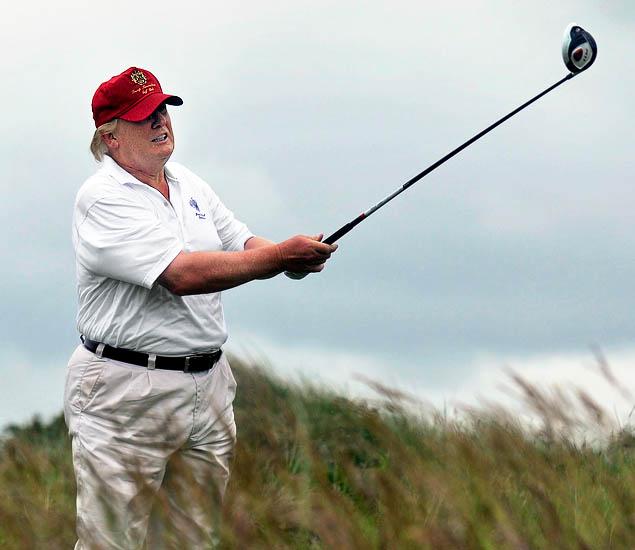Donald Trump, a Fraggle Rock puppet inspired by Mussolini, has won favor in polls for his loose usage of dangerous words and both vague and specific threats, not directing them only at American enemies but also at Americans.
He’s spoken recklessly of oil wars and such, despite draft deferments that kept him personally far from any bunker that wasn’t situated on a golf course. An Economist essay looks at the many uses of the word “war,” including its troubling application in regards to the Islamic State. An excerpt:
War in its canonical form has state armies on a battlefield trying to control territory. Most of today’s shooting wars are not even that clean cut—America has not declared one officially since the second world war. But worse, politicians have been unable to resist the temptation to declare war on things like poverty (Lyndon Johnson), drugs (Ronald Reagan) or terrorism (George Bush).
Declaring such “wars” is a problem because such a war on a concept is unwinnable: poverty and drugs will never show up and sign a surrender document on the battleshipMissouri, as Imperial Japan did in 1945 to end the second world war. Did Johnson defeat poverty? Did Reagan defeat drugs? We certainly know that Mr Bush did not defeat terrorism.
What about declaring war on Islamic State (IS), presumed by all to be behind the Paris massacres? “War” is exactly the term IS would most eagerly choose. Wars are fought by armies belonging to states—just what the Islamic State fancies itself. In reality, the territory controlled by ISIS—the “caliphate”—has some elements of a state, with everything from fighting forces to rudimentary social services, but it is unrecognised, claiming territory other states have a legitimate claim to. IS’s claim to state status is dubious. Mr Hollande runs the risk of raising that status when he calls eight men with guns and small bombs capable of “an act of war” against a nuclear power.•
Tags: Donald Trump

